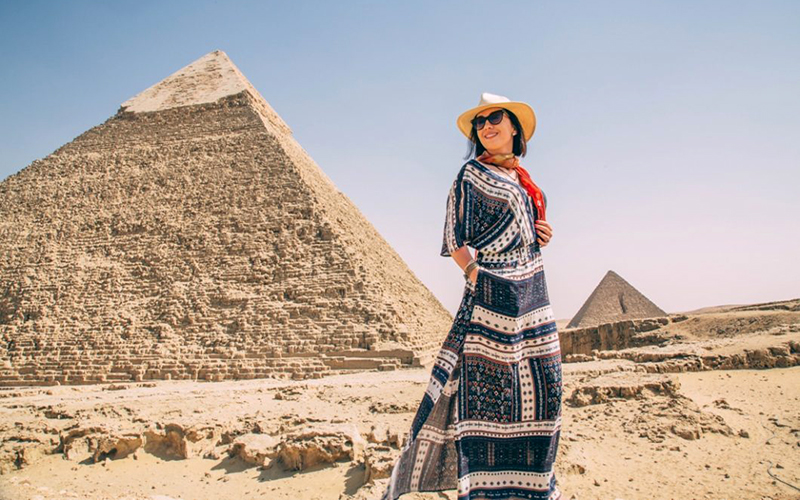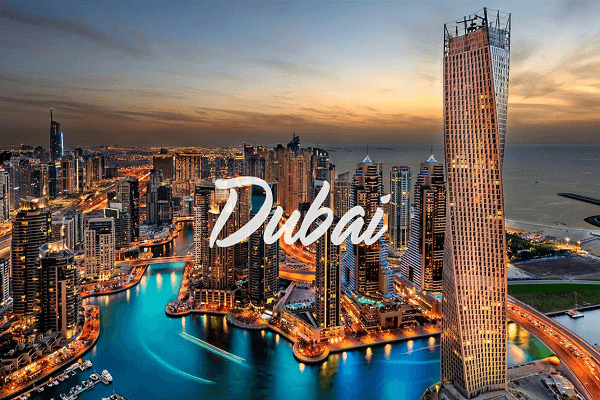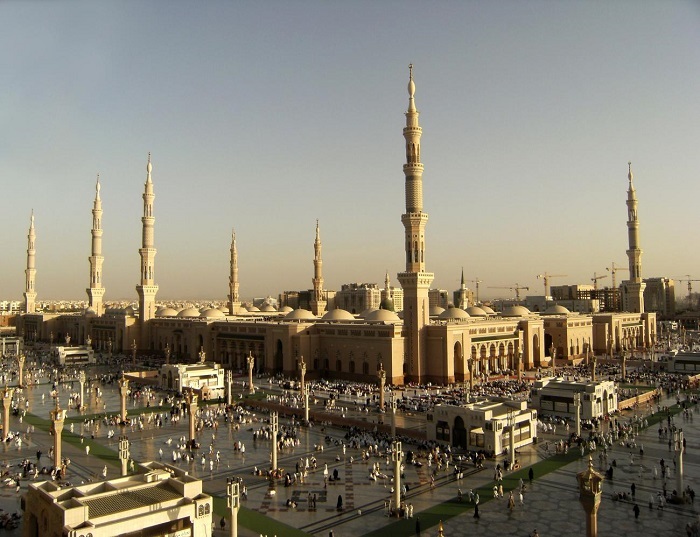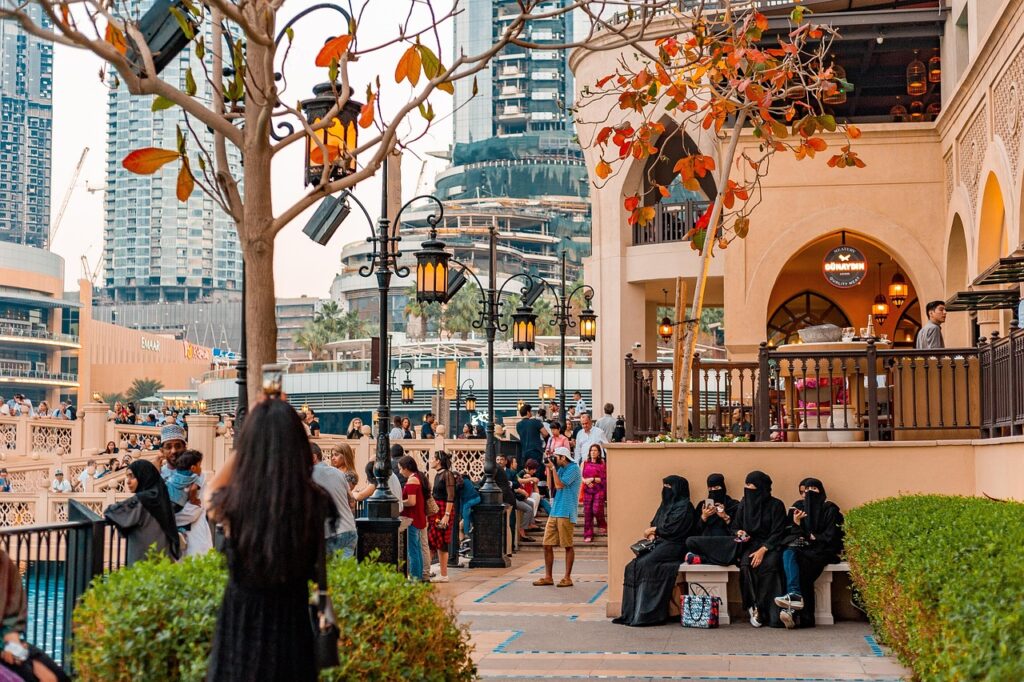Exploring Arab Tourism: From the Pyramids of Egypt to the Skyscrapers of Dubai and Saudi Heritage
Estimated reading time: 15 minutes
Key Takeaways
- The Arab world (Egypt, Dubai, Saudi Arabia) offers a unique blend of ancient history, luxurious modernity, and cultural heritage.
- Egypt stands out with historical landmarks such as the Giza Pyramids, Luxor Temple, and experiences along the Nile River.
- Dubai impresses with modern architecture (Burj Khalifa, Palm Jumeirah) and luxurious, desert adventure activities.
- Saudi Arabia is an emerging destination with archaeological landmarks (AlUla), sacred cities, and traditional hospitality.
- Careful planning of itinerary, budget, accommodation, visa, and safety is essential for a successful trip.
Table of Contents
- Introduction: The Irresistible Charm of Arab Tourism
- Egypt: A Timeless Journey and Exploration of This Historic Destination
- Dubai: The Modern Wonder of the Arab World and a Future Destination
- Saudi Arabia: Exploring the Heart of Arabia – An Emerging Attractive Destination
- Planning Your Arab Travel Adventure
- Conclusion: An Array of Diverse and Unforgettable Arab Travel Experiences Awaits
- Frequently Asked Questions (FAQ)
Introduction: The Irresistible Charm of Arab Tourism
Have you ever dreamed of a captivating Arab tour, where thousands of years of history blend with modern wonders and rich cultural experiences? The Arab world, with its incredible diversity, has always been an alluring destination, inviting travelers to explore hidden mysteries and unique beauty. From the ancient temples of Egypt, the splendid opulence of Dubai, to the raw beauty and gradually unveiling heritage of Saudi Arabia, each Arab country has its distinct mark, promising unforgettable adventures.
This article will be your guide on the journey to explore the top destinations in notable Arab countries such as Egypt, Dubai, and Saudi Arabia. We will delve deeper into unique attractions, distinctive cultural activities, and provide practical travel tips so you can confidently plan your memorable Arab trip. Get ready to be captivated by the blend of ancient and modern, between tradition and innovation in these legendary lands.
Egypt: A Timeless Journey and Exploration of This Historic Destination
Overview: The Land of Pharaohs and the Mysterious Nile Landscape
Egypt, a name evoking images of magnificent pyramids, mighty pharaohs, and the poetic Nile, is a timeless historical destination. It mesmerizes travelers with millennia of history, colossal architectural remains, and cultural richness. For history lovers and explorers, Egypt truly is a treasure, where the heritage of ancient pharaohs and the enchanting beauty of the Nile landscape intertwine, creating an irresistible allure. The journey to Egypt is not just a trip; it’s a voyage back in time, exploring a brilliant civilization that has shaped an important part of human history.

Must-Visit Historical Sites in Egypt
Egypt boasts iconic historical monuments that attest to a glorious ancient civilization.
- Giza Pyramids: Standing tall on the Giza plateau, near Cairo, the Giza Pyramids along with the Great Sphinx are unmistakable symbols of Egypt. Considered one of the Seven Wonders of the Ancient World, these massive structures are a resounding testament to the engineering prowess and power of the pharaohs of the Old Kingdom. Standing before the grandeur of the Pyramids of Khufu, Khafre, and Menkaure, visitors cannot help but marvel at the capabilities of ancient humanity. This is certainly a must-visit destination for anyone setting foot in Egypt, not only for its historical value but also for its architectural wonder.
- Luxor Temple and Valley of the Kings: Dubbed the “largest open-air museum in the world,” Luxor is home to an astonishing collection of ancient monuments. The Luxor Temple and the nearby Karnak Temple complex, with their gigantic columns and intricate reliefs, showcase the scale and sanctity of ancient religious rites. On the other side of the Nile River lies the Valley of the Kings, where many powerful pharaohs of the New Kingdom, including the famous tomb of Tutankhamun, rest. Exploring these intricately decorated tombs offers a vivid and insightful look into beliefs about the afterlife and the royal legacy of ancient Egypt.
- Abu Simbel Temples: Located in southern Egypt near the Sudan border, the Abu Simbel Temples are a masterpiece of ancient architecture and engineering. These two monumental rock temples were carved into the mountainside by Pharaoh Ramses II in the 13th century BC. The larger temple is dedicated to Ramses II, featuring four colossal statues of him seated at the entrance. The smaller temple is devoted to Queen Nefertari. Remarkably, in the 1960s, the entire temple complex was relocated to a higher site to avoid being submerged by Lake Nasser after the Aswan Dam was built. This is an inspiring testament to ancient engineering and heritage preservation efforts.
Unique Cultural Experiences in Egypt
In addition to admiring ancient monuments, Egypt offers enriching cultural experiences.
- Nile River Cruises: One of the best ways to experience the beauty and history of Egypt is through Nile river cruises. The journey typically lasts several days, passing through ancient cities such as Luxor and Aswan. Onboard, you can relax and enjoy views of rural landscapes, lush green fields, and ancient monuments from a unique perspective. This is an opportunity to immerse yourself in the slow pace of life along the river and feel the long-standing connection between Egyptians and this legendary river.
- Egyptian Cuisine: Exploring Egyptian cuisine is an indispensable part of the trip. Try traditional and flavorful dishes such as Koshari (a mix of rice, pasta, lentils, and spicy tomato sauce), Ful Medames (stewed fava beans), Molokhia (jute leaf soup), and freshly baked flatbreads. Street food is also rich and delicious, offering an authentic taste of local life. Enjoying these dishes is a way to gain insights into the country’s rich culinary heritage.
Practical Travel Tips for Egypt
To ensure your trip to Egypt is smooth and comfortable, keep the following points in mind:
- Best time to visit Egypt: The most pleasant weather for exploring archaeological sites is from October to April of the following year. During this time, temperatures are cooler, especially in the south like Luxor and Aswan, making outdoor sightseeing much more comfortable than the scorching summer.
- Visa requirements Egypt: Most international travelers, including Vietnamese citizens, need a visa to enter Egypt. You can apply for a visa at the Egyptian embassy/consulate in your country before the trip, or for many nationalities, you can apply for an electronic visa (e-visa) online or visa on arrival at major international airports. Please check the latest regulations applicable to your nationality before departure to ensure a smooth entry process.
Dubai: The Modern Wonder of the Arab World and a Future Destination
Introduction: The City of “Most” and Luxurious Experiences
Dubai, a city and emirate of the United Arab Emirates (UAE), embodies luxury, ambition, and unending innovation. It dazzles visitors with skyscrapers stretching to the sky, top-notch luxurious experiences, and fascinating desert adventures. Dubai is not only a global economic and financial hub but also a future destination, where the boldest ideas are brought to life. This city attracts all types of travelers, from urban explorers and luxury shopping enthusiasts to thrill-seekers and adventurers.

Iconic Attractions of Dubai
Dubai is famous for its iconic architectural masterpieces, breaking every record and limit.
- Burj Khalifa: You can’t mention Dubai without referencing Burj Khalifa. With a staggering height of over 828 meters, it is currently the tallest building in the world. Visitors can access the “At the Top” and “At the Top Sky” observatories on the 124th, 125th, and 148th floors to admire breathtaking views of Dubai from above. Watching the sunset or the city glittering at night from Burj Khalifa is an experience not to be missed.
- Palm Jumeirah and Dubai Mall: Palm Jumeirah is a unique artificial island shaped like a palm tree, featuring luxury hotels, beach resorts, seaside villas, and top-tier restaurants. Take a stroll or ride the monorail to see the impressive architecture of this area. Meanwhile, Dubai Mall, one of the largest shopping centers in the world, is not just a shopping paradise with thousands of stores but also a massive entertainment complex with the Dubai Aquarium & Underwater Zoo, an Olympic-sized ice rink, and the entrance to Burj Khalifa.
- Dubai Miracle Garden: True to its name, Dubai Miracle Garden is a colorful oasis in the heart of the desert, showcasing over 50 million flowers intricately shaped into gigantic and unique artworks such as an Emirates A380 flower display, castles, cartoon characters… This garden usually opens during the cooler winter months and is a great spot for photography and enjoying nature.
Unique Experiences Only in Dubai
Beyond architectural landmarks, Dubai offers one-of-a-kind experiences.
- Desert Safaris: Escape the glitz of the city and embark on a desert safari to explore the majestic beauty of the Arabian desert. The experience includes exciting activities like dune bashing, camel riding at sunset, and sandboarding. In the evening, enjoy a lavish BBQ dinner under the stars, watch belly dancing performances, and traditional Tanoura dancing, providing a genuine cultural experience.
- Luxury Dining and Luxury Shopping: Dubai is a paradise for fine dining and luxury shopping enthusiasts. The city boasts numerous Michelin-starred restaurants or those run by world-renowned chefs, serving a variety of dishes from around the globe. Besides Dubai Mall, other shopping venues such as Mall of the Emirates (with the indoor ski resort Ski Dubai) and outdoor shopping areas like City Walk or The Beach at JBR also offer a multitude of options from high-end fashion brands to unique products.
Travel Tips for Your Trip to Dubai
To fully enjoy your trip to this vibrant city, consider the following:
- Ideal duration of stay in Dubai: To explore the main highlights and engage in distinctive activities, you should spend about 4 to 7 days in Dubai. This timeframe is adequate for visiting iconic landmarks, enjoying entertainment, shopping, and participating in desert safaris without feeling rushed.
- Local customs in Dubai: Although Dubai is an international and open city, the UAE is still a Muslim country. Travelers should respect the culture and local customs in Dubai. This includes dressing modestly and appropriately in public places (especially when visiting traditional areas or religious buildings). Avoid displaying excessive affection in public and heed the regulations regarding alcohol (consumption is only allowed in licensed venues like hotels, bars, clubs).
Saudi Arabia: Exploring the Heart of Arabia – An Emerging Attractive Destination
Introduction: Welcoming the World with Archaeological Landmarks
In recent years, Saudi Arabia has opened its doors to international tourism, revealing a treasure trove of cultural heritage, impressive archaeological sites, and breathtaking landscapes that are little known. Once a rather closed kingdom, Saudi Arabia is now emerging as an attractive emerging destination, where travelers can witness a unique blend of age-old traditions and dynamic modernization. From the sacred cities of Islam to ancient Nabatean ruins embedded in the desert and ambitious future urban projects, Saudi Arabia promises surprising discoveries and authentic experiences of the heart of the Arabian Peninsula.

Main Attractions in Saudi Arabia
This vast kingdom boasts various destinations, from religious to historical and natural.
- Mecca and Medina: As the two holiest cities in Islam, Mecca (Makkah) and Medina (Madinah) attract millions of Muslim pilgrims from all over the world each year to perform Hajj and Umrah rituals. Mecca is home to the Grand Mosque of Masjid al-Haram and the sacred Kaaba, while Medina houses the Mosque of the Prophet (Al-Masjid an-Nabawi) and the tomb of Prophet Muhammad. It is important to note that, according to Saudi law, only Muslims are permitted to enter the sacred areas of Mecca. Medina is somewhat more open, but entry to the main mosque remains reserved for Muslims.
- AlUla: Located in northwestern Saudi Arabia, AlUla is a beautiful desert oasis and one of the kingdom’s archaeological treasures. The main highlight is Hegra (also known as Madain Saleh), Saudi Arabia’s first UNESCO World Heritage Site. Similar to Petra in Jordan, Hegra is famous for over 100 intricately carved tombs set into sandstone cliffs by the Nabatean civilization more than 2,000 years ago. In addition to Hegra, AlUla features breathtaking natural landscapes with uniquely shaped sandstone formations (like Elephant Rock), the AlUla Old Town, and contemporary art sites like the Maraya Concert Hall (the largest mirror building in the world).
- Diriyah in Riyadh: Just on the outskirts of the capital Riyadh, the At-Turaif district in Diriyah is another UNESCO World Heritage Site and is considered the birthplace of modern Saudi Arabia. This area is known for its traditional Najdi mudbrick architecture and has been carefully restored. Strolling through the palaces, mosques, and ancient streets of Diriyah provides insight into the kingdom’s history and culture, especially the first Saudi dynasty.
Immerse Yourself in Saudi Culture
Experiencing the local culture is an important part of exploring Saudi Arabia.
- Traditional Saudi Hospitality: Saudis are renowned for their warm hospitality. Travelers can feel this through friendly welcomes, invites for tea or coffee (Qahwa), and dates. Enjoying local dishes such as Kabsa (rice with chicken or lamb), Jareesh (crushed wheat cooked with yogurt), or Matazeez (dumplings in meat and vegetable sauce) is also a wonderful way to experience the rich culinary culture.
- Local Festivals: Participating in local events and festivals provides a vivid opportunity to experience the culture. Festivals like Janadriyah (near Riyadh) celebrate cultural heritage, craftsmanship, and traditional activities such as camel racing and folk art performances. Other events like the winter Tantora festival in AlUla combine music, art, and food in a stunning historical backdrop.
Essential Information When Traveling to Saudi Arabia
When planning your trip, be aware of the following important information:
- Saudi Arabia’s visa policies: Saudi Arabia has implemented an electronic tourist visa (e-visa) system for citizens of many countries (check the list of eligible countries on the official visa portal). The online application process is quite simple and quick. Travelers from ineligible countries need to apply for a visa through the Saudi embassy/consulate.
- Saudi Arabia’s dress code: Although regulations have been relaxed for international travelers, dressing modestly and appropriately is still encouraged to show respect for the local culture. Men should avoid wearing shorts in public. Women are not required to wear headscarves, but should wear loose clothing that covers their shoulders and knees. In more conservative areas or when visiting religious sites, wearing an abaya (a long black cloak) may still be required or considered a respectful gesture.
Planning Your Arab Travel Adventure
Suggested Itinerary: Combining Arab Countries
To make the most of your trip to this region, consider multi-country itineraries. Combining Egypt, Dubai, and Saudi Arabia in one trip offers an exciting contrast between ancient civilizations, cutting-edge modernity, and the unique cultural heritage of the Arab countries.
- Duration: You should allocate at least 4-7 days for each country to have enough time to explore major attractions and experience the culture without feeling rushed. A 2-3 week itinerary is ideal for a trip combining all three destinations.
- Order: You may start in Egypt to immerse yourself in history, then fly to Dubai to experience modernity and luxury, and finally explore the novelty and heritage of Saudi Arabia. Alternatively, you could arrange them geographically or according to personal preference.
- Connections: There are plenty of convenient flight connections between Cairo, Dubai, Riyadh, and Jeddah, making travel between countries easy.
Budget and Accommodation Choices
Creating a budget for your Arab trip heavily depends on your travel style.
- Accommodation: All three countries offer diverse accommodation options.
- Egypt: Features luxury hotels overlooking the Nile or the Pyramids, comfortable mid-range hotels, and even affordable hostels for budget travelers.
- Dubai: Renowned for some of the world’s most luxurious 5-7 star hotels, but it also has many 3-4 star hotels, serviced apartments, and some more affordable options.
- Saudi Arabia: Major cities like Riyadh and Jeddah have many modern international hotels. In AlUla, there are unique luxury resorts and developing mid-range options.
- Other costs: Don’t forget to account for costs related to activities such as admission tickets to monuments, guided tours (particularly important in Egypt and AlUla), desert safaris, dining, and shopping. Costs in Dubai are generally higher than in Egypt and Saudi Arabia, especially regarding fine dining and luxury entertainment.
Safety and Travel Insurance Considerations
- Safety: Generally, Egypt, Dubai, and Saudi Arabia are considered relatively safe destinations for travelers, especially in major tourist areas. The rate of violent crime against tourists is quite low. However, like anywhere in the world, travelers should always be vigilant with personal belongings, avoid walking alone at night in deserted areas, and respect local laws and customs. Always stay updated with travel advisories from your embassy before and during your trip.
- Travel insurance: Purchasing travel insurance is very important and highly recommended. Ensure your insurance plan covers medical emergencies, flight cancellations, loss of luggage, and other unforeseen incidents. This will provide you with peace of mind throughout your exploration journey.
Conclusion: An Array of Diverse and Unforgettable Arab Travel Experiences Awaits
The Arab world, with its unique appeal, truly is a must-visit destination. An Arab journey not only takes you to the magnificent ancient wonders of Egypt and the dazzling and modern marvels of Dubai but also unveils the hidden beauty and rich heritage of Saudi Arabia. The fusion of millennia-old history, stunning innovations, and vibrant cultures creates diverse experiences that cater to every traveler’s interests.
From standing before the Giza Pyramids, marveling at Dubai from the top of Burj Khalifa, to exploring the ancient tombs in AlUla, every moment in this journey promises to etch deep into your memory. Don’t hesitate; start planning your adventure to this mystical land today. Unforgettable adventures and delightful discoveries await you in the upcoming Arab journey!
Frequently Asked Questions (FAQ)
- 1. Which Arab destination is best for history lovers?
Egypt is the top choice with ancient sites like the Giza Pyramids, Luxor Temple, and the Valley of the Kings. Saudi Arabia also boasts AlUla (Hegra) with ancient Nabatean tombs.
- 2. How can I respect local culture in Dubai and Saudi Arabia?
Dress modestly and appropriately in public (cover shoulders and knees). Avoid displaying excessive affection. In Saudi Arabia, learn more about specific behavioral rules, especially during Ramadan or when visiting religious areas.
- 3. When is the best time to travel to Egypt?
The best time is from October to April of the following year when the weather is cooler and more pleasant for outdoor sightseeing.
- 4. Do I need a visa to visit these countries?
Most travelers (including Vietnam) require a visa for Egypt and Saudi Arabia. Dubai (UAE) has visa-free or visa on arrival policies for many nationalities, but check specific regulations for your passport. Saudi Arabia and Egypt also offer e-visas for many countries.
- 5. Is it feasible to combine all three countries Egypt, Dubai, and Saudi Arabia in one trip?
Absolutely feasible thanks to convenient flight connections. It is advisable to spend at least 2-3 weeks to have sufficient time to explore each country. This provides a diverse experience from ancient to modern and unique cultural heritage.

